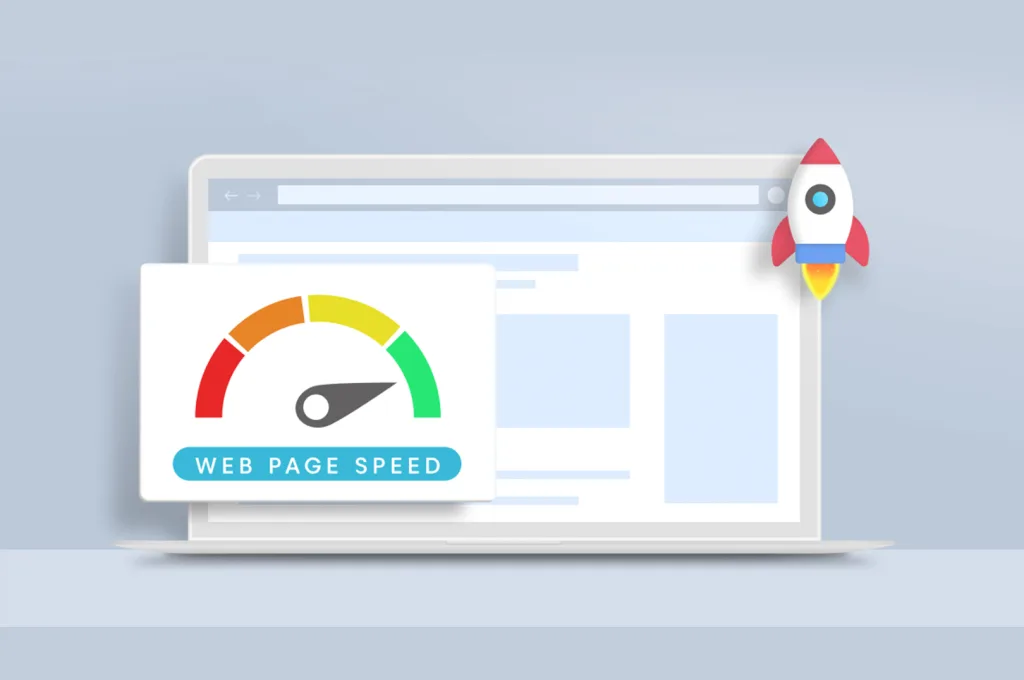The importance of website performance and speed
Introduction
Website performance and speed are essential for any business that wants to succeed in the digital age. A website’s performance and speed can have a direct impact on user experience, search engine rankings, and overall success. Poor website performance and speed can lead to decreased user engagement, higher bounce rates, and decreased conversions. On the other hand, a website with good performance and speed can lead to increased user engagement, better search engine rankings, and higher conversions. Therefore, it is important for businesses to understand the importance of website performance and speed and take the necessary steps to ensure their website is optimized for the best possible performance and speed.

How Website Performance and Speed Affect User Experience
Website performance and speed are essential components of a successful user experience. When a website is slow to load, users become frustrated and may abandon the site altogether. Poor performance and speed can also lead to a decrease in conversions, as users are less likely to complete a purchase or sign up for a service if the website is slow or unresponsive.
Website performance and speed are determined by a variety of factors, including the hosting environment, the size of the website, the number of requests made to the server, and the amount of traffic the website receives. Additionally, the use of large images, videos, and other media can significantly slow down a website.
To ensure a positive user experience, website owners should take steps to optimize their website for performance and speed. This includes optimizing images and other media, reducing the number of requests made to the server, and using a content delivery network (CDN) to serve content from multiple locations. Additionally, website owners should ensure that their hosting environment is optimized for speed and performance.
By taking steps to optimize website performance and speed, website owners can ensure that their users have a positive experience. This can lead to increased conversions, higher customer satisfaction, and improved brand loyalty.
The Benefits of Optimizing Your Website for Speed
Optimizing your website for speed is essential for providing a positive user experience and improving your website’s search engine rankings. A website that loads quickly and efficiently is more likely to keep visitors engaged and encourage them to return. Here are some of the key benefits of optimizing your website for speed:
1. Improved User Experience: A website that loads quickly and efficiently provides a better user experience. Visitors are more likely to stay on the page and explore the content if it loads quickly. This can lead to increased engagement and conversions.
2. Increased Search Engine Rankings: Search engines prioritize websites that load quickly. Optimizing your website for speed can help you rank higher in search engine results pages, which can lead to more organic traffic.
3. Reduced Bounce Rate: A slow-loading website can lead to a high bounce rate, which is the percentage of visitors who leave the website after viewing only one page. Optimizing your website for speed can help reduce the bounce rate and keep visitors on the page longer.
4. Improved Conversion Rates: A website that loads quickly is more likely to convert visitors into customers. Optimizing your website for speed can help you increase your conversion rates and generate more revenue.
Optimizing your website for speed is essential for providing a positive user experience and improving your website’s search engine rankings. By taking the time to optimize your website for speed, you can enjoy the many benefits it has to offer.
Strategies for Improving Website Performance and Speed
1. Optimize Images: Images are often the largest files on a website, and they can slow down page loading times. To improve website performance, optimize images by compressing them and using the correct file format.
2. Minimize HTTP Requests: Every time a browser requests a file from a server, it takes time. To reduce the number of requests, combine multiple files into one, such as combining multiple CSS files into one.
3. Enable Browser Caching: Browser caching stores website files in the user’s browser, so that when they visit the website again, the files are already stored and don’t need to be downloaded again. This can significantly improve website performance.
4. Use a Content Delivery Network (CDN): A CDN is a network of servers located around the world that store copies of your website’s files. When a user visits your website, they are served the files from the closest server, which can significantly reduce page loading times.
5. Minify HTML, CSS, and JavaScript: Minifying HTML, CSS, and JavaScript files removes unnecessary characters, such as whitespace, comments, and formatting, which can reduce file size and improve website performance.
6. Use a Faster Web Host: A web host is a server where your website is stored. If your web host is slow, it can significantly affect website performance. Consider switching to a faster web host if you’re experiencing slow page loading times.
The Impact of Slow Website Performance on SEO
Website performance is an important factor in SEO (Search Engine Optimization). Slow website performance can have a negative impact on SEO, as it can lead to a decrease in organic search engine rankings, a decrease in website traffic, and a decrease in conversions.
Search engine algorithms take website performance into account when ranking websites. If a website takes too long to load, search engines may rank it lower than other websites with faster loading times. This can lead to a decrease in organic search engine rankings, which can result in fewer visitors to the website.
Website visitors also expect websites to load quickly. If a website takes too long to load, visitors may become frustrated and leave the website before they have a chance to explore it. This can lead to a decrease in website traffic, as visitors may not return to the website if they have a negative experience.
Finally, slow website performance can lead to a decrease in conversions. If a website takes too long to load, visitors may not have the patience to wait for it to finish loading and may abandon the website before they have a chance to complete a purchase or sign up for a service. This can lead to a decrease in conversions, as visitors may not return to the website if they have a negative experience.
In conclusion, slow website performance can have a negative impact on SEO. It can lead to a decrease in organic search engine rankings, a decrease in website traffic, and a decrease in conversions. To ensure optimal SEO performance, website owners should ensure that their websites are optimized for speed and performance.
How to Monitor and Measure Website Performance and Speed
Monitoring and measuring website performance and speed is essential for ensuring that your website is running optimally and providing the best user experience. There are a variety of tools and techniques available to help you monitor and measure website performance and speed.
First, you should use a website performance monitoring tool to track the performance of your website. These tools can provide you with real-time data on page load times, server response times, and other performance metrics. This data can help you identify any potential issues that may be impacting your website’s performance.
Second, you should use a website speed testing tool to measure the speed of your website. These tools can provide you with detailed information on page load times, page size, and other performance metrics. This data can help you identify any potential issues that may be impacting your website’s speed.
Third, you should use a website analytics tool to track user behavior on your website. This data can help you identify any potential issues that may be impacting user experience.
Finally, you should use a website optimization tool to optimize your website for speed and performance. These tools can help you identify any potential issues that may be impacting your website’s performance and speed.
By using these tools and techniques, you can ensure that your website is running optimally and providing the best user experience. Monitoring and measuring website performance and speed is essential for ensuring that your website is running smoothly and providing the best user experience.
Conclusion
In conclusion, website performance and speed are essential for any website to be successful. A website that is slow or unreliable will not only frustrate users, but it will also lead to a decrease in conversions and sales. Website performance and speed should be a priority for any website owner, as it can have a significant impact on the success of the website. Investing in website performance and speed optimization can help to ensure that users have a positive experience when visiting the website, and that the website is able to reach its full potential.
If you want your website to perform at its best, you need to ensure it is running at optimal speed. Don’t let slow loading times and poor performance drag down your website’s success. Visit Elegant to learn more about how to improve your website’s performance and speed.







